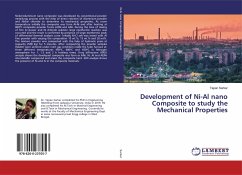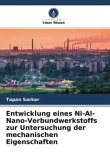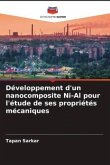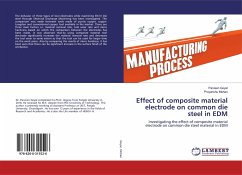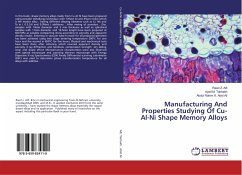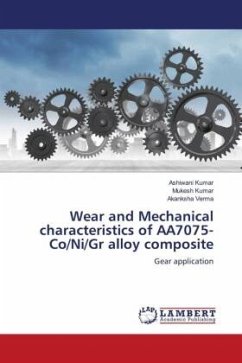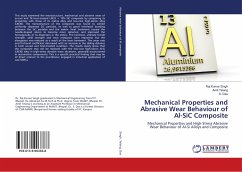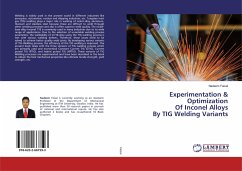Nickel-Aluminium nano composite was developed by conventional powder metallurgy process with the help of direct reaction of Aluminium powder and Nickel chloride to determine its mechanical properties. At room temperature initially the composite was form Al-Ni and after heating at 600ºC composite powder forms Al3Ni and AlNi. During the time of mixing of fine Al power and Ni chloride solution large exothermic reaction was occurred and the result is confirmed by presence of large exothermic peak of differential thermal analysis curve. Initially Ni-Cl salt was mixed with Al fine powder with varying the composition 10 wt.%, 15 wt.% and 20.wt%. The mixture powder was compacted with the help of hydraulic press at (capacity 2500 kg) for 5 minutes. After compacting the powder samples (Tablet) were sintered under inert gas condition inside the tube furnace at three different temperatures 450ºC, 600ºC and 650ºC in Nitrogen atmosphere for 1, 1.5 and 2 h holding times. X-ray diffraction (XRD)analysis shows the developed composite was form as AlNi, Ni, Al and Al3Ni intermetallic compound and make the composite hard. EDX analysis shows the presence of Ni and Al in the composite materials.
Bitte wählen Sie Ihr Anliegen aus.
Rechnungen
Retourenschein anfordern
Bestellstatus
Storno

